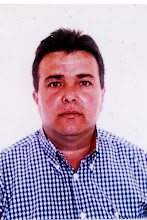
Overcoming Panic Attack - Definition and Causes
Tips to cope with overcoming panic attacks
Panic attacks are sudden and discrete periods of
intense anxiety, fear, stomach problems and
discomfort associated with a variety of somatic
and cognitive symptoms.
The onset of these episodes is generally abrupt, and
may have no obvious triggers.
Experiencing a panic attack is said to be one of the most
intensely frightening, upsetting and uncomfortable
experiences of a person's life.
Usually the symptoms of a panic attack commonly last
approximately thirty minutes.
However, panic attacks can be as short as 15 seconds,
while sometimes panic attacks may form a cyclic
series of episodes, lasting for an extended period,
sometimes hours.
Panic attacks are commonly linked to agoraphobia and
the fear of not being able to escape a bad situation.
Many who experience panic attacks feel trapped and
unable to free themselves.
Sufferers of panic attacks often report a fear or
sense of dying, "going crazy", or experiencing a heart
attack or "flashing vision", heavy breathing, or losing
control of themselves.
A panic attack is a response of the sympathetic
nervous system (SNS). The most common symptoms
may include trembling, dyspnea (shortness of breath),
heart palpitations, chest pain (or chest tightness), hot
flashes, cold flashes, burning sensations, particularly
in the facial or neck area, sweating, nausea, slight
vertigo, light-headedness, hyperventilation, tingling
sensations, etc.
These physical symptoms are interpreted with alarm
in people prone to panic attacks.
Panic attacks are distinguished from other forms of
anxiety by their intensity and their sudden, episodic
nature.
They are often experienced in conjunction with anxiety
disorders and other psychological conditions, although
panic attacks are not always indicative of a mental
disorder.
Panic disorder has been found to run in families, and
this may mean that inheritance plays a strong role
in determining who will get it.
However, many people who have no family history of
the disorder develop it.
Environmental factors such as an overly cautious view
of the world expressed by parents and cumulative
stress over time have been found to be causes.
Panic attacks may also have and biological causes, as
obsessive compulsive disorder, post traumatic stress
disorder, hypoglycemia, hyperthyroidism, etc.
People are often experience panic attacks as a direct
result of exposure to a phobic object or situation.
A significant personal loss, including an emotional
attachment to a romantic partner, life transitions,
significant life change, stimulants such as caffeine
or nicotine, or the drugs like marijuana, can act as
triggers.
As a general rule, those that suffer from panic attacks
engage in a passive style of communication or
interactions with others.
Sometimes panic attacks may be a listed temporary
side effect of medications.
Nearly the entire class of antidepressants can cause
increased anxiety in the beginning of use.
Alcohol, medication or drug withdrawal can cause panic
attacks to develop as part of their withdrawal
syndrome or rebound effect.
Associating certain situations with panic attacks, due
to experiencing one in that particular situation, can
create a cognitive or behaviorally predisposition to
having panic attacks in certain situations.
Cardiac conditions can also result in panic attacks.
This is particularly difficult to manage as the anxiety
relates to events that may occur such as cardiac arrest.
It can be difficult for someone with a cardiac condition
to distinguish between symptoms of cardiac dysfunction
and symptoms of anxiety or panic attack.
Without an electrocardiogram it can be difficult to
differentiate between symptoms of panic attack and
cardiac symptoms in those with these types of diagnosis.
While the various symptoms of a panic attack may
feel that the body is failing, it is in fact protecting
itself from harm.
The various symptoms of a panic attack can be
understood as follows. First, there is frequently the
sudden onset of fear with little provoking stimulus.
This leads to a release of adrenaline (epinephrine)
which brings about the so-called fight-or-flight
response wherein the person's body prepares
for strenuous physical activity.
This leads to an increased heart rate (tachycardia),
rapid breathing (hyperventilation) which may be
perceived as shortness of breath (dyspnea), and
sweating.
However, the best advice is to consult a specialist to
establish the right cause of your disorder and to
prescribe you a right treatment.
The natural way therapies are the most indicated for
cases of panic attack and anxiety.
For those who have this kind of problems, I recommend
you to meet Dr. Joe Barry McDonagh and to try his
Natural Treatment for Anxiety and Panic Attack.You
may find him here:
I use to give for free a cell phone to all my readers.


No hay comentarios:
Publicar un comentario